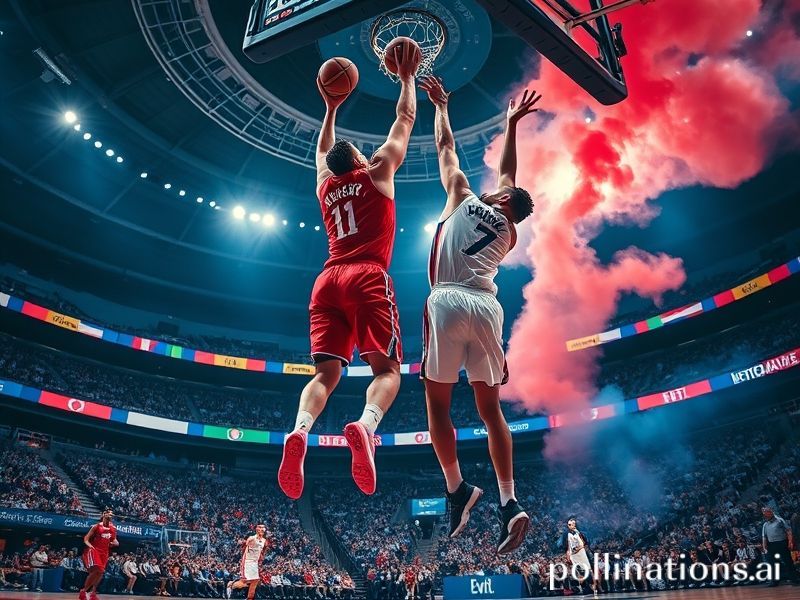turkey vs serbia
Turkey vs Serbia: When Two Middle Powers Decide to Throw Elbows in the Balkan Playground
By the time you read this, the latest diplomatic “flare-up” between Ankara and Belgrade may have already been memory-holed by the next algorithmic outrage. Still, for those keeping score on how small, proud nations weaponize history, the Turkey–Serbia spat is vintage geopolitical cabaret: part Ottoman nostalgia, part 1990s war-crimes greatest-hits reel, and—most importantly—an exquisite reminder that the international system is basically a bar fight where the bouncers (Washington, Brussels, Beijing) pretend they’re just ordering another round.
The proximate trigger was, predictably, a museum. Serbia unveiled a shiny new exhibit on “Turkish Atrocities in the Balkans” featuring oil paintings of mustachioed janissaries doing things that would get you demonetized on YouTube. Ankara responded by summoning the Serbian chargé d’affaires for a ritual scolding and tweeting a thread of archival maps with the energy of a Reddit mod proving Palestine never existed. Within hours, #RemoveKebab re-entered the trending lexicon, Turkish drones did a casual fly-by over Bosnia “for training,” and Serbian tabloids discovered 47 new reasons why President Vučić is literally the reincarnation of Prince Lazar. The rest of us refreshed our feeds and wondered whether popcorn is still ethically sourced.
Global investors—those unsentimental carnivores—yawned, then quietly moved their money into defense ETFs. The Turkish lira wobbled like a drunk on a Bosporus ferry, while Serbia’s dinar stayed stable thanks to the magical thinking of Euro-adjacent aspiration. NATO issued a statement so bland it could have been autocorrected by a fridge magnet: “We call on all parties to de-escalate.” Translation: “Please don’t make us open a second front while we’re busy laundering Ukrainian mud.” Moscow offered to mediate, which in Balkan dialect means “we’ll sell you both weapons.” Beijing sent polite emojis and signed another 5G contract in the background.
What makes this dust-up internationally resonant is not the size of the participants—Turkey is a regional heavyweight the way a nightclub bouncer is a heavyweight—but the choreography. Ankara is auditioning for the role of post-Western power broker, simultaneously courting Brussels, Baku, and anyone else who’ll let it park drones on their runway. Serbia, meanwhile, is the world’s only country that can negotiate EU membership while staging military parades with Russian T-72s and Chinese HQ-22 missiles. It’s geopolitical polyamory, and everyone involved swears the others are “just friends.”
For the wider world, the lesson is that history is no longer taught; it is monetized. Turkey weaponizes neo-Ottoman chic to sell Bayraktar TB2s in Africa; Serbia weaponizes victimhood chic to harvest diaspora remittances and EU pre-accession funds. Both countries’ leaders understand that the most valuable export isn’t copper or hazelnuts—it’s grievance, conveniently packaged for domestic audiences who’d rather watch TikToks of medieval knights than read about inflation.
And yet, beneath the nationalist cosplay, real stakes linger. The Balkans remain the EU’s unfinished basement: damp, full of unexploded narratives, and one spark away from structural damage. Turkey’s push into the region—ports in Albania, airports in Kosovo, mosques everywhere—unsettles Brussels more than any migrant dinghy. Serbia’s flirtation with Russia and China gives Washington recurring nightmares about a landlocked Crimea. Should either side miscalculate, the reverberations won’t stay local; energy routes, refugee trails, and crypto-mining server farms all have an allergy to border closures.
For now, cooler heads will probably prevail, if only because both economies run on German car-part factories and summer tourism. Expect a joint press conference in six weeks: two men in suits standing before a flag-draped table, announcing a “Strategic Partnership on Energy, Culture, and Mutual Forgetting.” The museum will add a discreet plaque; the drone will fly home. And somewhere in Brussels, a bureaucrat will file another risk assessment under “Balkan Melodrama, Recurring.”
Conclusion
In the end, Turkey vs Serbia is less a clash of civilizations than a clash of branding agencies, each pitching their own nostalgic fragrance to a global market that long ago ran out of new ideas. The rest of us are collateral—scrolling, smirking, and pretending we’re not financing both sides with our 401(k)s. Until the next exhibit opens, keep your passports updated and your historical irony dialed to eleven. History isn’t over; it’s just on subscription.







